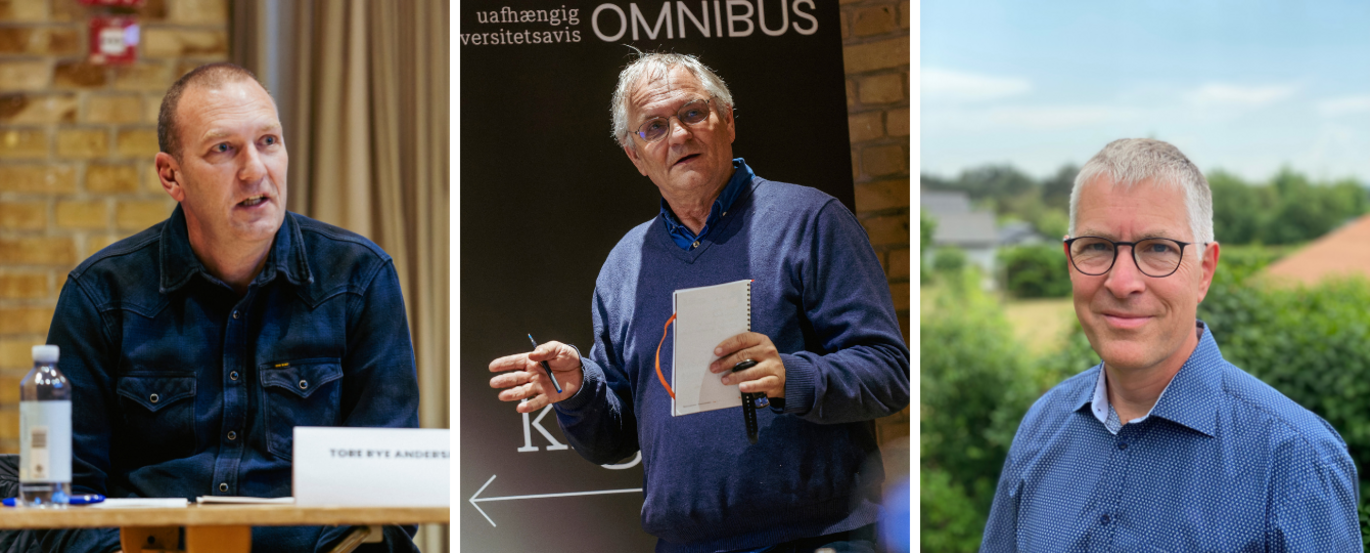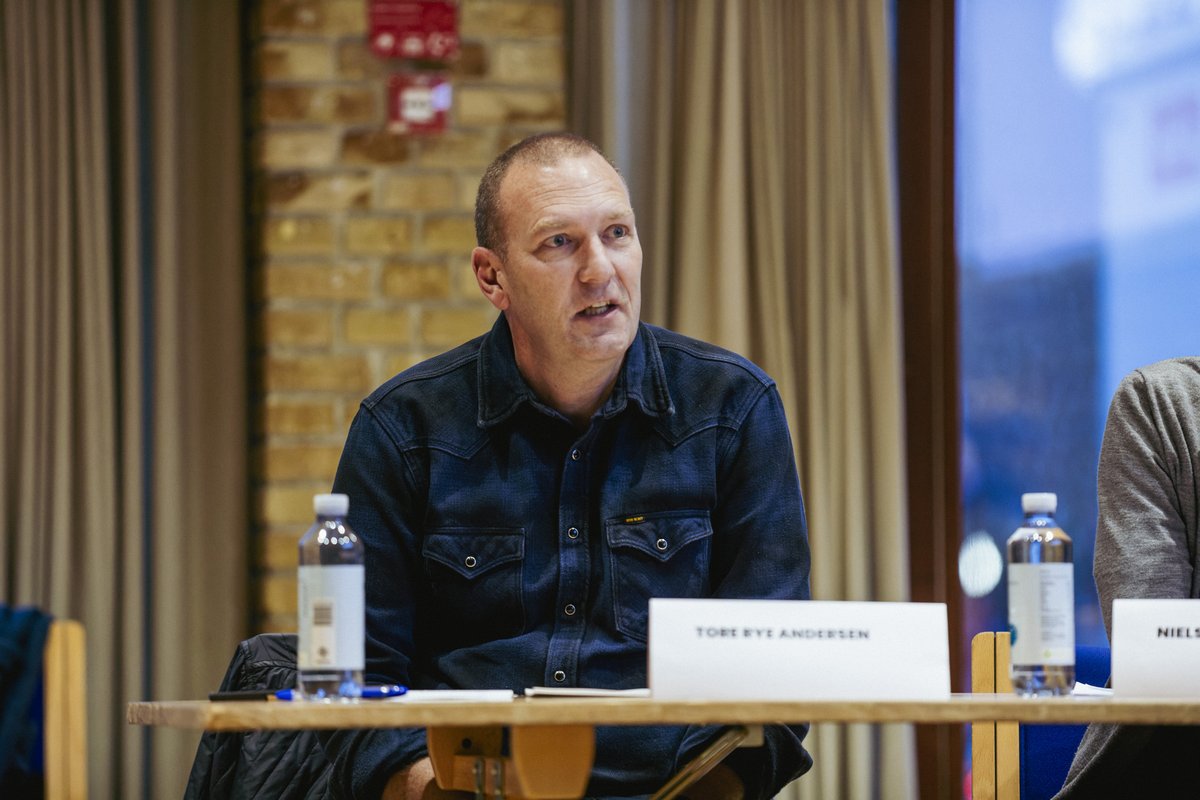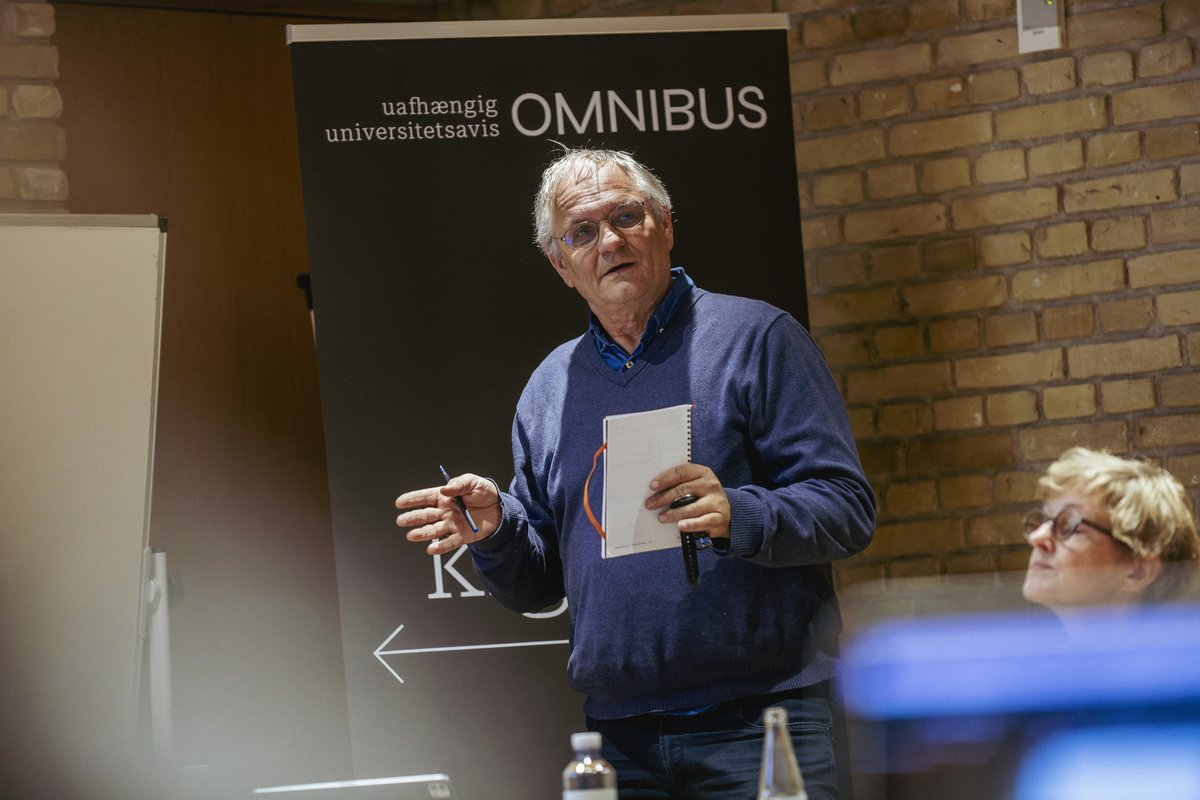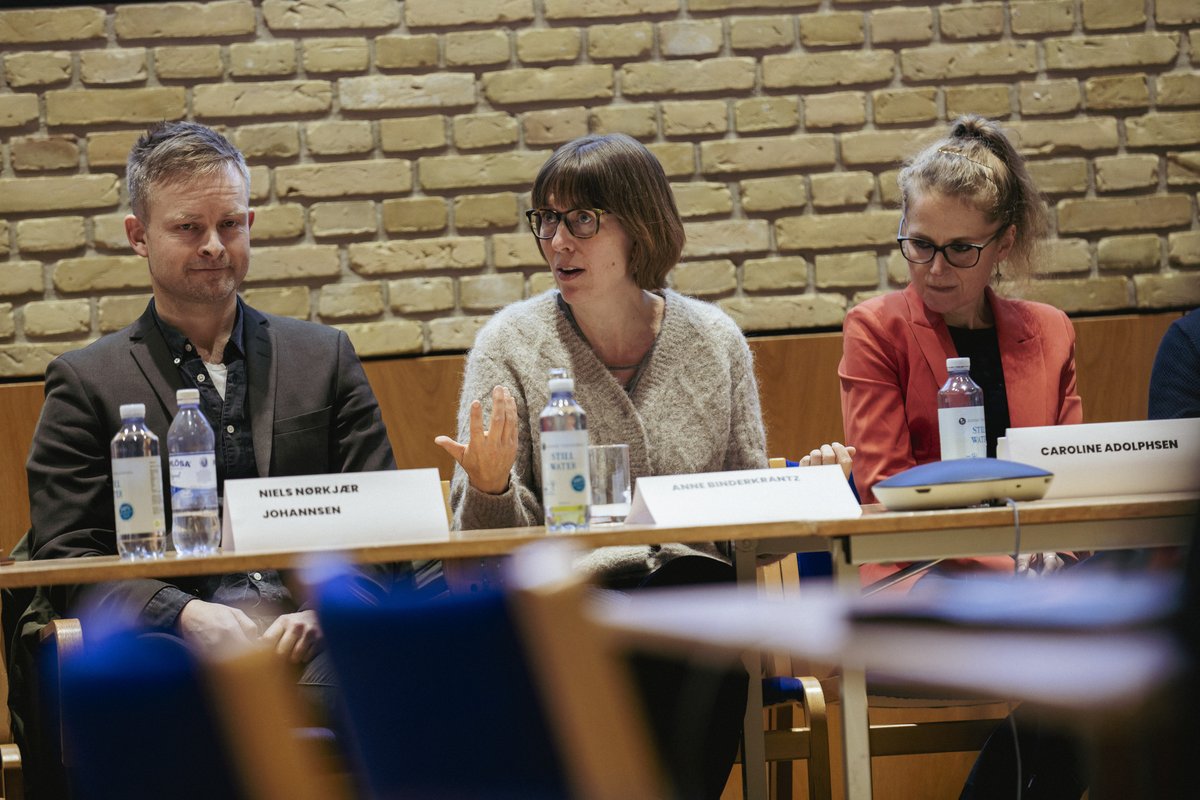Result of the university elections: Candidates from Arts and Nat have been elected as academic staff representatives to the AU Board
The three current staff representatives on the Aarhus University Board all wanted to serve another four years in the post. But only Peter Balling and Uffe Pilegård Larsen will be able to continue. Anne Binderkrantz from Aarhus BSS will have to give up her seat to Arts’ newly elected candidate Tore Rye Andersen.

UNIVERSITY ELECTIONS 2023
- See all the results here – including the results of elections to the academic councils, boards of studies and PhD committees.
Contested elections: 39
Uncontested elections: 163
Cancelled elections: 11
Uncontested elections/cancelled elections: 6
VOTER TURNOUT
Voter turnout over the four days of the election:
- Monday 13/11 at 15:00: 8.89%
- Tuesday 14/11 at 9:00: 11.39 %
- Wednesday 15/11 at 9:00: 15.77%
- Thursday 16/11 at 9:00: 18.56%
Final voter turnout in 2023: 20.64%
Voter turnout in 2022: 18.47%
Voter turnout in 2021: 14.76%
All three of the staff representative seats on the Aarhus University Board were contested this year – and all three of the current representatives wanted to continue in the post.
But now that the votes have been counted, it’s clear that only two of the incumbent representatives will be able to stay on. These are buildings manager Uffe Pilegård Larsen, who will continue as staff representative for technical and administrative staff, and professor of physics and Peter Balling, who has been re-elected as academic staff representative by employees at Nat, Tech and Health.
The current academic staff representative for Arts and Aarhus BSS, professor of political science Anne Binderkrantz, will have to hand over her seat to Arts’ candidate Tore Rye Andersen, associate professor of comparative literature.
Although Anne Binderkrantz received 122 personal votes, making her the academic candidate with the most personal votes, this was not enough to win the seat, because the Arts list received the most votes overall.
Among candidates for the technical and administrative staff seat, it was Merethe Kruse who received the most personal votes, but this was not enough to beat Uffe Pilegård Larsen once the votes for the whole list were counted.
Arts takes up the post

Tore Rye Andersen, associate professor at the School of Communication and Culture, is grateful to have been elected to the AU Board. He points out that it was important for many members of academic staff at Arts to fight for the post in this election.
“At Arts, we feel that we’re particularly vulnerable, so we launched a strong campaign to get a seat on the AU Board this year. Having said that, I want to represent both Arts and Aarhus BSS, and I will endeavour to be a strong voice for both faculties. I will ensure that I reach out to staff at both faculties and that I represent their views on the board. One of the first things I will do is to reach out to the outgoing representative, whom I believe has done a great job on the board,” says Tore Rye Andersen.
Continuity is important
Peter Balling, who is a professor at the Department of Physics and Astronomy, is also thankful to have been re-elected.

He has this to say about the new group of representatives:
“I have enjoyed working with Anne Binderkrantz, and it’s always sad to have to say goodbye to a good colleague on the board. But that’s democracy, and I’m sure that we’ll have a good working relationship with the new representative from Arts. As board members, we look after the interests of all employees regardless of which faculty they work in,” says Peter Balling.
He also points out that his and Uffe Pilegård Larsen’s reelection – along with the reelection of the two student representatives – ensures a level of continuity, which he thinks is important. Not least when you look at some of the issues the newly elected board will have to deal with over the next four years.
“We need to get started on a new strategy to steer a course for the university over the coming years; we’ve actually already begun working on it. And there are other things that will challenge the university in the years ahead, including the Master’s reform, which combined with the current demographic development means that we risk losing educational revenue over the next few years. It is the responsibility of the board to steer the university through any financial challenges that may result from this,” says Peter Balling.
“We need to play to each other’s strengths”
Uffe Pilegård Larsen is also looking forward to working with Tore Rye Andersen.
“We’ll work well together. I have no doubt about that. On the board, it’s about playing to each other’s strengths and working together despite any differences of opinion we may have. We’re on a board with highly skilled external board members, so we need to argue well and mediate in order to best represent a broad section of AU employees. For the good of the university.”

The contest to be elected as representative for technical and administrative staff was close this year, as Uffe Pilegård Larsen was challenged by AC-TAP staff (academic staff in administrative positions). Over the next four years, he will make it a priority to be available to this group of staff too. That is, if they would also welcome closer collaboration, he says.
“After the last election, my intention was to make myself available to all members of technical and administrative staff. But with the many Corona lockdowns, I have to admit that I haven’t managed to reach as many people as I hoped.”
A third of employees voted
Uffe Pilegård Larsen also commented on this year’s voter turnout, which ended up at 20.64% overall.
“The voter turnout is what we expected – it’s an indication that most members of staff don’t see the board as particularly important. But I definitely think it is, because it’s the board that decides what happens in both good and bad times.”
33% of academic staff voted in the AU Board elections, compared with only 28% of technical and administrative staff. In the last election in 2019, 39.5% of academic staff voted, and the election for the technical and administrative staff representative was uncontested.
Chair: Voter turnout has recovered after the Corona period
In his review of this year’s election results, Ole Terkelsen, who is associate professor of law and chair of AU’s Election Committee, emphasised that voter turnout seems to have recovered following the Corona period, when overall voter turnout plummeted to under 15% in 2021.
He also pointed out that the number of cancelled elections – that is, elections that cannot take place because no candidates put themselves forward – fell to 11. Last year, there were 16. This is something the Election Committee will continue to focus on, he explains.


